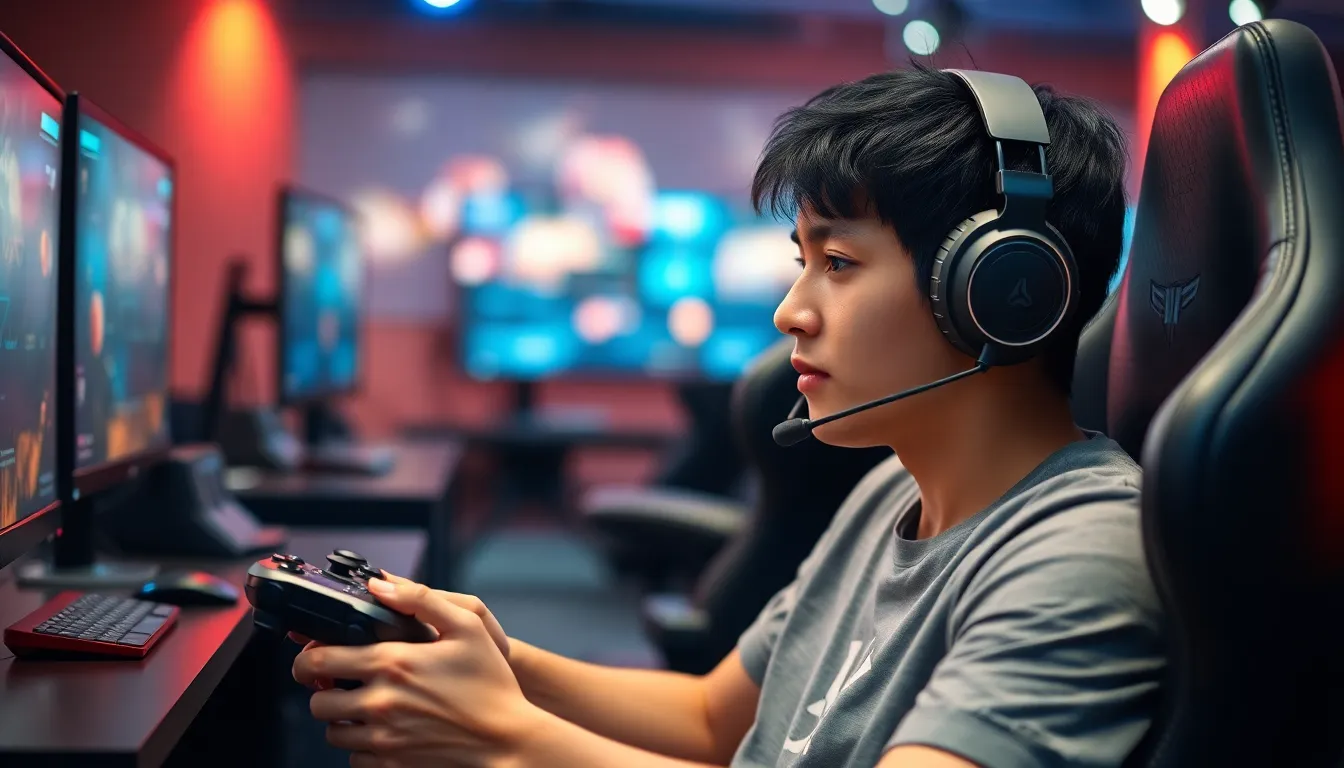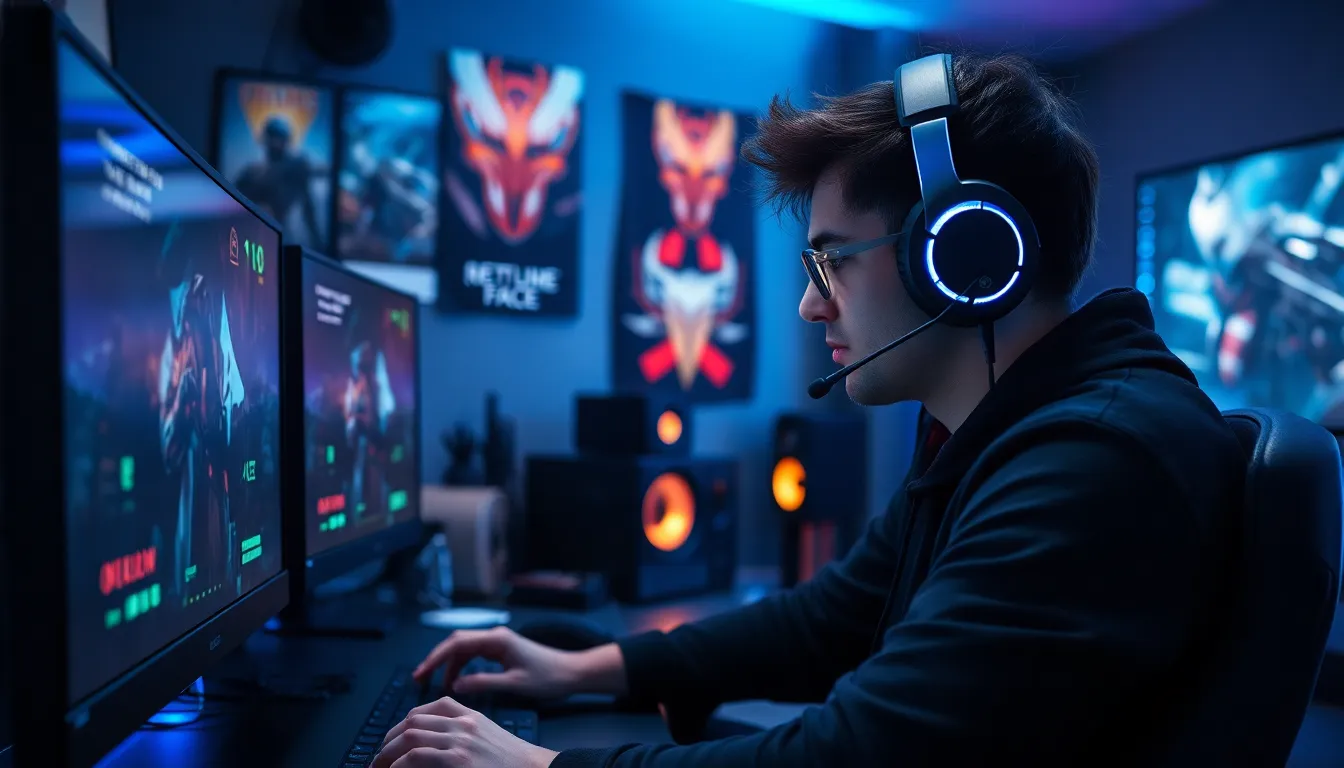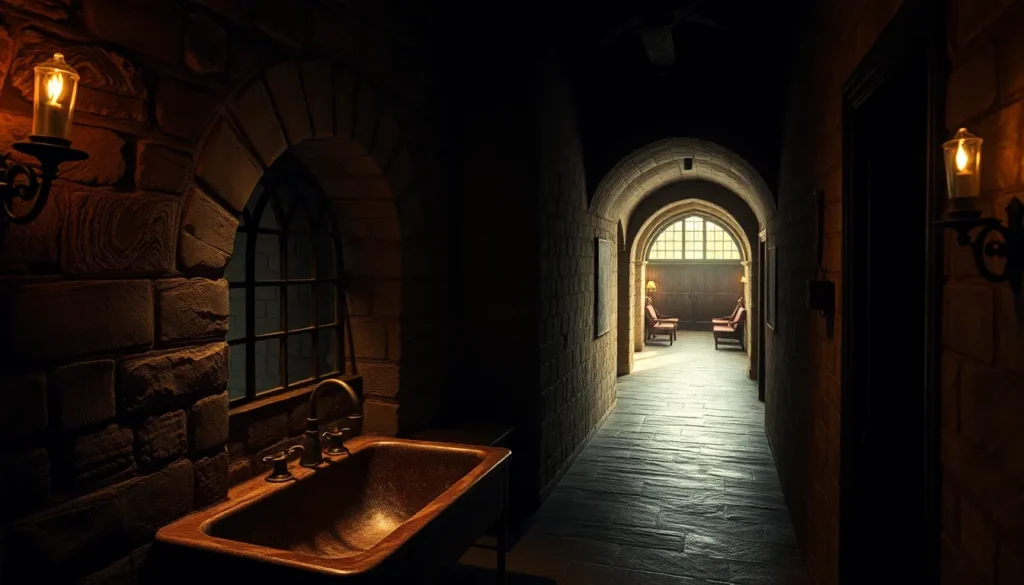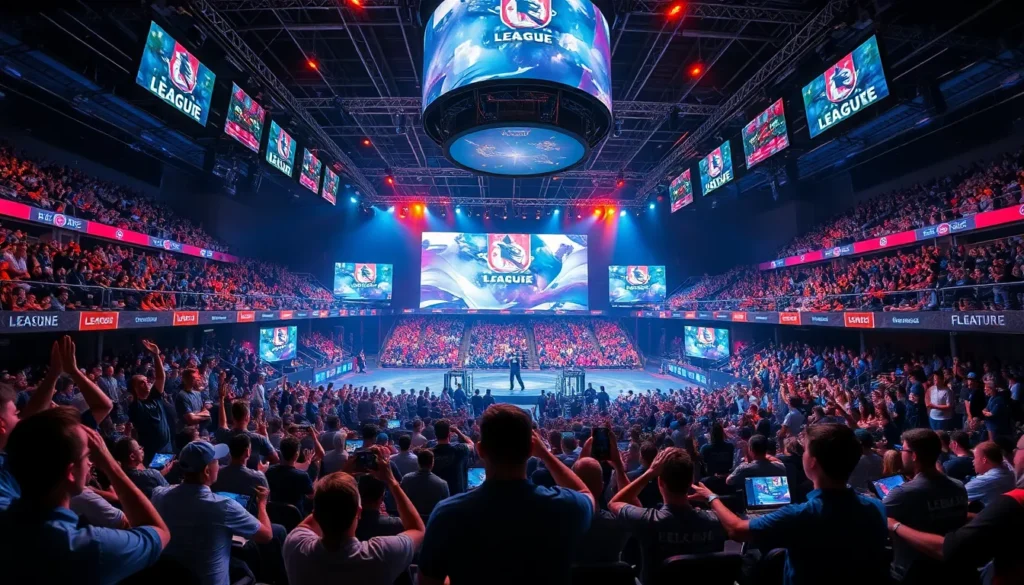In a world where sitting on the couch for hours can actually pay off, professional gamers have turned what was once a pastime into a lucrative career. Imagine getting paid to play video games while your friends are stuck in nine-to-five jobs. Sounds like a dream, right? Well, for these digital athletes, it’s a reality filled with competition, strategy, and a whole lot of energy drinks.
Table of Contents
ToggleOverview of Professional Gamers
Professional gamers participate in competitive gaming at a high level, often in organized tournaments. These individuals can earn substantial incomes through prize money, sponsorship deals, and streaming platforms. Many gamers dedicate significant time to honing their skills, often practicing for several hours each day.
With the gaming industry expanding rapidly, the opportunities for professional gamers also increase. Players can find roles not only in traditional competitions but also in content creation, where they build dedicated audiences on platforms like Twitch and YouTube. They engage viewers through live streaming and create gaming-related content, resulting in additional revenue streams.
Competitive tournaments attract large audiences, with events like The International or League of Legends World Championship showcasing top talent. Gamers often travel worldwide to participate in these events, where prizes can exceed millions of dollars. The intense competition demands strict discipline and continual improvement, requiring gamers to stay updated on gaming trends and strategies.
Maintaining peak performance involves careful attention to physical and mental health. Many gamers follow specialized diets and exercise regimens to enhance their gameplay. It’s common for serious players to struggle with burnout, making balanced lifestyles essential for longevity in the profession.
Professional gaming also fosters a sense of community among players. Networking occurs through events, social media, and online platforms, linking players with industry professionals. Collaboration among gamers frequently leads to team formations, where mutual skills enhance competitive chances.
The world of professional gamers encompasses diverse paths, disciplined routines, and significant opportunities. Those dedicated to this career spend ample time refining their skills, maintaining health, and engaging with the gaming community.
Characteristics of Professional Gamers

Professional gamers possess distinct traits that set them apart in the competitive gaming landscape. These characteristics enhance their performance and contribution to the gaming community.
Skills and Abilities
Exceptional hand-eye coordination defines many professional gamers. Often identified as a crucial skill, players excel in precise control and reaction times. Strategic thinking and problem-solving abilities also play a pivotal role; they analyze opponents and make quick decisions during gameplay. Communication skills enable effective collaboration within teams, allowing for seamless coordination during matches. Time management becomes essential as gamers balance practice, competitions, and content creation. Adaptability remains vital in an ever-evolving gaming environment, where trends and strategies frequently shift.
Mental Toughness
Mental toughness drives professional gamers to excel under pressure. Players encounter high-stress situations during tournaments, requiring focused concentration and emotional resilience. Overcoming setbacks, such as losing matches, strengthens their resolve and helps them maintain a positive mindset. Continuous practice enhances their confidence, empowering them to face formidable opponents. Maintaining composure during critical moments proves essential, as emotional stability can influence performance. Establishing a routine fosters discipline, reinforcing their commitment to improvement. Overall, mental toughness combined with skill forms the backbone of a successful career in professional gaming.
The Journey to Becoming a Professional Gamer
The path to becoming a professional gamer involves dedication and perseverance. Gamers invest countless hours mastering their chosen titles, focusing on training and practice to sharpen their skills.
Training and Practice
Training schedules dictate a professional gamer’s routine. Many commit to several hours daily, engaging in competitive matches or practicing specific techniques. Gamers utilize various resources, including tutorials and gameplay analysis, to improve performance. Setting measurable goals fosters continual improvement, pushing individuals to track their progress over time. Consistent feedback from coaches aids in refining strategies and adapting to the evolving gaming landscape. Focusing on both individual skills and teamwork enhances overall gameplay effectiveness.
Finding the Right Team
Finding the right team plays a vital role in a gamer’s career. Collaborating with like-minded players creates synergy essential for success in competitive environments. Many networks form through online platforms, gaming events, or mutual acquaintances. Challenging each other during practice fosters growth and strengthens gameplay abilities. Choosing a team with complementary skills can create a well-rounded roster capable of handling diverse game scenarios. Open communication ensures clarity in strategies and roles, promoting teamwork and coordination during high-stakes tournaments.
The Gaming Community and Culture
Professional gaming thrives within a vibrant community that celebrates competition, collaboration, and creativity. This culture encompasses a wide variety of players, fans, and content creators, all contributing to the industry’s growth.
Esports Events and Tournaments
Esports events often draw massive crowds, with some tournaments hosting over 100,000 attendees. Major competitions like The International and League of Legends World Championship reflect the industry’s prominence, featuring top teams vying for multi-million-dollar prizes. These events serve as a platform for players to showcase skills, providing opportunities for sponsorships and networking. Enthusiasts engage through live streaming and in-person attendance, fostering a sense of camaraderie among fans. Many tournaments emphasize strategic gameplay and teamwork, pushing players to constantly evolve their tactics. The excitement surrounding these events enhances the overall appeal of competitive gaming, attracting new audiences and aspiring gamers alike.
Online Streaming Platforms
Online streaming platforms play a crucial role in shaping the gaming culture. Twitch and YouTube highlight professional gamers as they share gameplay, insights, and personal experiences. Content creators engage viewers by interacting through live chats, creating a sense of community. Many gamers build substantial followings, leading to sponsorship opportunities and monetized content. Streaming allows for real-time feedback, enabling gamers to refine skills while connecting with fans. Additionally, platforms often host charity events and tournaments, promoting positive contributions to the community. Regular updates and collaborations among streamers showcase the dynamic nature of the gaming landscape, solidifying its relevance in modern entertainment.
Challenges Faced by Professional Gamers
Professional gamers encounter numerous challenges that impact their careers and well-being. Rising competitiveness in the industry demands continuous adaptation and improvement.
Physical and Mental Health
Professional gaming places significant stress on both physical and mental health. Many gamers experience long hours of sitting, which can lead to posture issues and repetitive strain injuries. Incorporating regular breaks and stretching routines becomes essential to mitigate these risks. Mental challenges also arise, with high-pressure situations triggering stress and anxiety. Players often practice mindfulness and meditation techniques to enhance focus and maintain composure during tournaments. Prioritizing adequate sleep significantly contributes to improved cognitive function, which directly impacts gameplay performance.
Balancing Gaming and Personal Life
Finding balance between gaming and personal life poses another obstacle. Gamers dedicate extensive hours to practice and competition, often neglecting social interactions and family time. Establishing a structured schedule can help maintain this equilibrium. Setting boundaries around gaming sessions ensures time for physical activities, hobbies, and daily responsibilities. Engaging in offline social activities fosters personal well-being and promotes a healthy lifestyle. Professional gamers often share their strategies for balancing commitments, emphasizing the importance of prioritizing mental health alongside career ambitions.
The journey of a professional gamer is marked by dedication discipline and a passion for competition. As the gaming industry continues to grow the opportunities for gamers to thrive expand. They not only compete for substantial prizes but also engage with a vibrant community that fosters collaboration and creativity.
Maintaining a balanced lifestyle is essential for success in this demanding field. By prioritizing mental and physical health gamers can enhance their performance and sustain their careers. With the right mindset and commitment the world of professional gaming offers a rewarding path for those willing to put in the effort.




